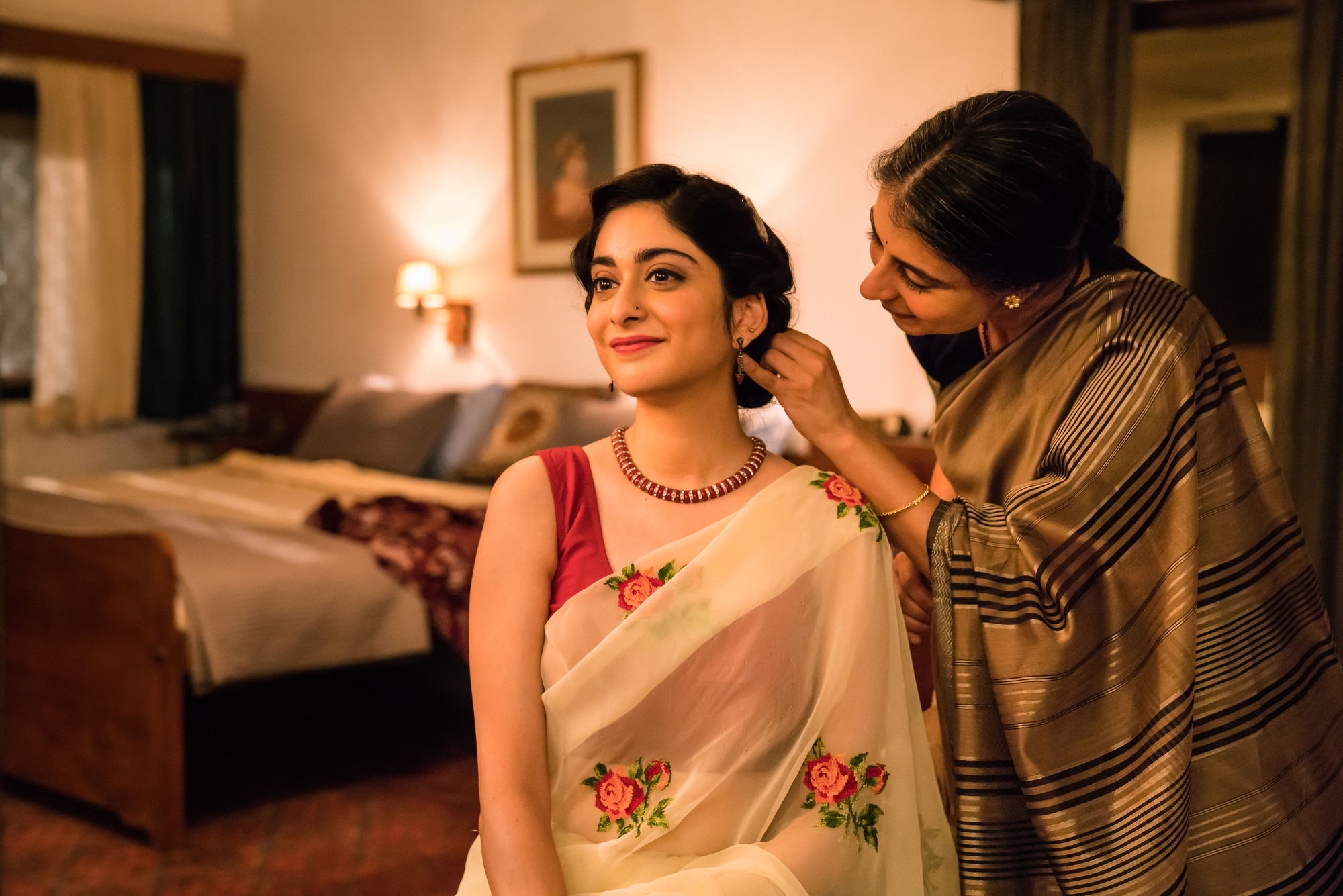It’s not everyday that you enter a room filled with emerging British Asian writers so there was a certain anxiety and trepidation as I took my seat at the table at the recent un-conference hosted by Nicole Thiara of Nottingham Trent University and Kavita Bhanot, editor of Too Asian, Not Asian Enough. The agenda had been already decided somewhat at this un-conference (usually the un-conference style is a little more whimsical – a topic is chosen and attendees lead discussions and take charge) entitled A Dialogue on Contemporary British Asian Writing. Participants were asked to submit a piece of creative writing or critical piece which was then distributed to us via email. Having received my workshop pack two things struck me. Firstly, how few of these British Asian writers I’d actually come across through my work on The Asian Writer. There was quiet celebration as I began reading through the pieces of creative writing – yes, there were more of us, and from what I read a pleasant surprise that the writing was strong, refreshingly honest, and even perhaps unafraid of being ‘British Asian.’ There was many many inclusions of regional writing – mentioning cities that I’ve not yet come to know through the eyes of a British Asian narrative (Manchester, Coventry, Birmingham etc). I found this particularly warming, having myself at earlier stages of a now sad and unforgotten novel ruled out the option to write about Leicester (my hometown) for it was not as romantic as Paris, as noisy as Mumbai or vibrant as London. What I was surprised at, was the frequency to write about lives that have come and gone in places that we no longer call home – (not that I want to discourage this sort of writing – my own novel is set in 1900’s India) but I was hoping for and even expecting some reflection of the lives that British Asian’s lead here in the UK. I was also looking for edgier, or experimental fictions. Genre writing was completely absent from the pack – no comedy, no crime, no sci-fi. Having recently found that genre writing is becoming more and more popular with Asian writers the lack of anything non-conformist presented me multiple concerns. The positive note was of course, that the writing itself was engaging and promising and there was no desire to sugarcoat British Asians or Asian experiences.
For the best part of this dialogue, we indulged in a heated discussion, about the British Asian label and identity. Was the label helpful, did it mean anything, did it help or hinder creative efforts? I would have much preferred the focus to be on the writing provided in the workshop pack. I found the over-tired debate about what it means to be a British Asian writer in the UK stale, and in many respects stuck in the past. It certainly meant that I wasn’t able to follow the conversation in the way I’d hoped, nor was I able to engage with a group which certainly at the time, seemed unable to move beyond the label, British Asian. There were some good points, Akbar made that the label gives us the ability to view things from a double perspective. If you don’t find it anyway useful you can simply reject it. This made sense but there was too much to-ing and fro-ing about identity that we didn’t have room to talk about the most interesting thing of all: the writing.
One of the most interesting things to come out of the discussion was the understanding of what motivated writers to select a certain piece of writing. Writers I know (who attended), who don’t often write about their own culture presented themselves with what could be considered to meet the requirements of “British Asian writing”. The justification to select a type of writing that fit the theme or criteria seemed redundant in the context that the discussion took place but suggested that there is a subconscious desire to toe the line. What British Asian writing is, or the themes that underpin it, didn’t take precedent during our dialogue and therefore as participants we were unable to break free into a more interesting discussion on the writing that we do and what it is that influences it. There was not a single mention of culture, which seems important, given that British Asian writing could and indeed does often embrace the whole South Asian region (we were looking at this region, as opposed to the wider pan-Asian region) which itself embraces Pakistani, Indian, Bengali, Sri Lankan and many many more cultures. One size doesn’t fit all. I made a point about writers who are Asian but don’t write what is considered as British Asian writing (Rana Dasgupta, Sanjida O’Connell, Romesh Gunsekera to name but a few) There was no time to further my point that British Asian writing isn’t specific to an ethnic group – novels I would class as British Asian or at the very least British South Asian literature don’t have to be written by an Asian writer (a recent example of this, is Raphael Selbourne’s Beauty) Had this deeper discussion taken place we would have perhaps got closer to the heart of the discussion of better understanding what constitutes as British Asian writing and what its themes are.
I found some of the rhetoric stupid and even, dangerous. There was a suggestion that to be read widely we must write for white audiences in mind as Asians don’t read. I’m grateful that this was shut down as soon as it was voiced. There was a little publisher-bashing which didn’t hit the right notes – I feel it is better to understand the lack of diversity in the publishing workforce that leads to the disconnect between what the publisher is publishing and what Asian readers actually want to read than to talk about it in terms of publishers being driven by sales only. Publishers are business people, and therefore, they assess work in terms of commercial viability. There is nothing wrong with this of course, the problem is when we are constantly bombarded with writing that is classed as ‘British Asian’ that only panders to a certain type of fiction, or is inaccessible to the majority of Asian communities living in the UK.
During the latter half of the event the academics took over. Claire Chambers (York) and Ana Marie Sanchez-Arce (Sheffield Hallam) talked about their work in their respective academic communities. Claire talked briefly about her work with Muslim writers and looking at how they are marketed. Ana Marie talked at length about the difficulties of getting around a rigid curriculum when teaching post colonial literature which is heavily embedded at looking things from a single viewpoint. The academic discussion was refreshing but admittedly most of it went right over my head.
I left feeling frustrated for there was not enough time to talk through it all. I would have much liked to have found out more about the writers, and the writing they’re currently pursuing. I argued with myself for days later. For me the point of being a writer is to write, to express myself in words but also to provide entertainment. I am writing to move my reader: to make them laugh or cry, to take them on a journey. I don’t have a reader in mind. I don’t know what colour they are or where they come from. I write because I have to. For me it is much more important to produce art for art’s sake than with the limitations of a culturally specific reference. Who I am is important but I don’t think it says everything there is about my writing. To write British Asian because somebody else wants me to, would mean straying away from my own creative desires, and therefore take me away from what I am about. So what is British Asian writing? I thrashed this out and because for me, everything comes back to food or fashion I could only find myself to think about it in those terms. A sari worn in the UK is still part of Indian culture. Whether the wearer is Asian or not. A samosa whether made by my mother or my neighbour (who is Nigerian) is still part of Indian cuisine. And no one would argue that it is wrong or limiting to classify either food or fashion as Indian or Asian, so why literature? Classifying or putting things in categories is after all something that is done across the board, in other creative forms: fashion, food and music.
I argued with myself. It can’t be as simple as allowing British Asian writing to be defined simply in terms of what British Asian writers are writing about. I struggled with this concept at first but if we all started writing Sci-Fi, surely that would mean we’re writing Sci-fi and not that British Asian writing is Sci-fi writing. For too long we’ve allowed ourselves to be represented by literary fiction, clever writing that’s difficult to digest, and possibly even more difficult to write. We’ve seen British Asian writing set in places that we’ve never been to, Lahore, London, Karachi, Mumbai and Delhi. In homelands that have never been home. If we choose to tell our stories in Leicester, Manchester, Birmingham (and don’t stop short because our own lives are stupidly dull) than surely that’s when British Asian writing will shift into what British Asian writing should be rather than what we think it ought to be. We need to think beyond identity so we have the best chance at connecting with our inner artists, to explore our imaginations, to share universal stories (without paying homage to what’s come before or to the Euro-centric view of universal writing). This will help to cement authentic British Asian stories in the wider British literary landscape and help to bring forward diverse British Asian characters and narratives that will appeal to, as well as reflect the diverse experiences of the all too often ignored British Asian population living in the UK.


